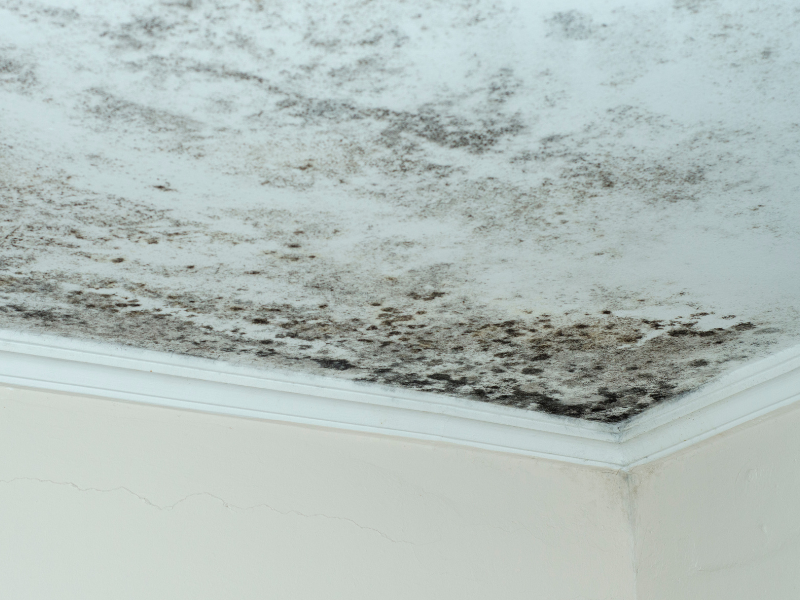
20 Feb Fighting against moisture in ceilings
The presence of moisture in the ceiling is not only unsightly, but can also be an indicator of deeper structural problems in the home. The accumulation of moisture can lead to the formation of mold and fungi, compromising the health of the occupants and the integrity of the building. Fortunately, there are effective methods to remove moisture from the ceiling and prevent its reappearance.
Contenidos
How can we remove moisture from the ceiling?
From our position as a company, in Humilogic we can help you say goodbye to the humidity on the roof of your home.
- Identify the cause: before controlling moisture in the ceiling, it is crucial to identify the underlying cause. Possible sources of moisture may include water leaks from the outside, indoor ventilation problems, or even plumbing problems. Carefully inspect the affected area to determine the source of moisture and address it properly before proceeding with any treatment.
- Improved ventilation: lack of proper ventilation can cause moisture to build up in the ceiling and other areas of the house. Install additional ceiling fans or open windows regularly to promote air circulation. Consider installing exhaust fans in moisture-prone areas, such as kitchens and bathrooms, to remove excess moisture in the air.
- Repair of leaks: water leaks from the ceiling can be a common cause of moisture. Inspect the roof for cracks, broken tiles, or damaged areas where water can infiltrate. Repair any identified damage and apply waterproof sealants as needed to prevent future leaks.
- Treatment of mold and fungal stains: if moisture in the ceiling has caused the formation of mold or fungi, it is important to treat these areas effectively to avoid health problems and structural damage. Use a solution of water and bleach or commercial products specifically designed to remove mold. Apply the treatment on the affected stains and let act according to the manufacturer’s instructions before cleaning with clean water and let dry completely.
- Prevention of recurrence: once you have removed moisture from the ceiling and treated any mold or fungal problem, it is important to take steps to prevent its recurrence. Maintain a well-ventilated indoor environment, perform periodic roof inspections, and repair any damage or leakage as soon as possible. Consider applying waterproofing paints or sealants to help protect the ceiling from moisture.
Why should we remove moisture from the ceiling?
Removing moisture from the ceiling is crucial for several important reasons, one of which is that the presence of moisture, can release spores into the air, which can cause health problems, especially in people with allergies, asthma or other respiratory conditions. Prolonged exposure to mold has also been linked to symptoms such as nasal congestion, eye irritation, cough, and difficulty breathing. On the other hand, constant moisture in the ceiling can damage the structure of the building over time. On the other hand, constant moisture in the ceiling can damage the structure of the building over time. Water can seep into the walls and into the structure itself, weakening the integrity of the building and causing problems such as cracks, paint peeling or even deterioration of building materials.
Moisture stains on the ceiling are unsightly and can affect the overall appearance of a room or the entire house. This can reduce the aesthetic value of the property and negatively affect the experience of residents and visitors.
Bad smell in your home due to humidity in the ceiling
The bad smell in a home due to humidity in the ceiling is an unpleasant and potentially worrying problem that can significantly affect the quality of life of residents. This unpleasant odor is usually caused by the presence of mold and fungi, which thrive in humid environments and can release volatile organic compounds that produce unpleasant odors.
Do you need to remove moisture from the ceiling of your home or elsewhere? We can help you, contact us.
